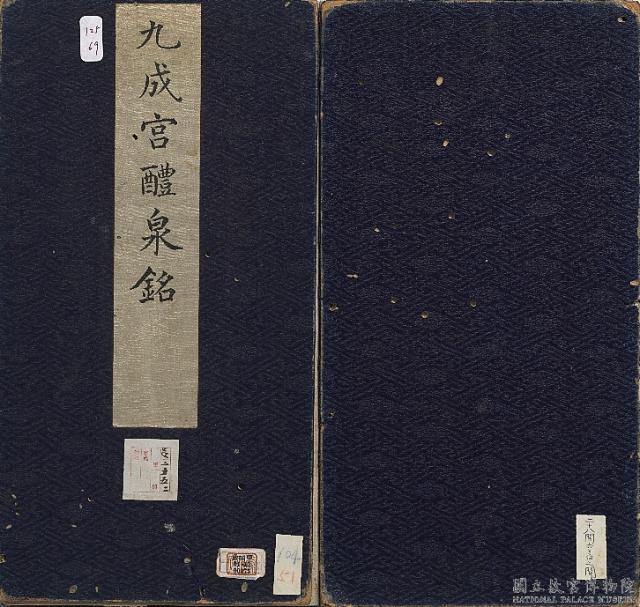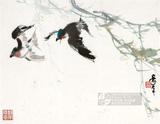九成宮醴泉銘 冊
推薦分享
資源連結
連結到原始資料 (您即將開啟新視窗離開本站)後設資料
- 資料識別:
- 故帖000075N000000000
- 資料類型:
- 類型:書法、法帖、墨拓
- 型式:文字
- 著作者:
- 歐陽詢(Ouyang Xun)
- 出版者:
- 數位化執行單位:國立故宮博物院
- 格式:
- 本幅一∼本幅五十五 32.1x34公分、全幅 32.1x34公分
- 語言:
- 漢文
- 關聯:
- 歐陽詢(五五七-六四一),字信本,湖南長沙人。任官至太子率更令,世人或以歐陽率更相稱。歐陽氏能作多種書體,而以楷書成就為高;傳世楷書碑刻又以貞觀六年(六三二)所書〈九成宮醴泉銘〉影響最深,得到「楷法極則」的美譽。目前〈九成宮醴泉銘〉碑石尚存陝西省麟游縣,由於歷代椎拓不絕,碑面磨損嚴重,世人或就流傳佳拓再行翻刻,本次展示的拓本即為清順治十三年翻刻本。(20110913)&* Ouyang Xun (style name Xinben), a native of Changsha in Hunan, served as “Heir Apparent Director of the Watches,” which is why he was referred to as “Director-of-the-Watches Ouyang.” Gifted at many calligraphic manners, Ouyang Xun’s greatest achievement was in regular script. Perhaps the most influential of his surviving examples of stele engraving in regular script is his “Inscription on the Sweet Wine Spring at Jiucheng Palace” from 632, which has been praised as the “Ultimate in Regular Script.” Currently the original stone stele for “Inscription on the Sweet Wine Spring at Jiucheng Palace” is preserved in Linyou County, Shaanxi Province. However, since rubbings have been continuously made over the ages, the surface of the stele is now severely abraded, which is why recarvings have been made based on fine surviving rubbings. On display here is a rubbing from a recarving made in 1656.(20110913)
- 管理權:
- 國立故宮博物院
授權聯絡窗口
- 國立故宮博物院圖像授權、出版授權、影音資料授權-申請流程說明
http://www.npm.gov.tw/zh-TW/Article.aspx?sNo=03003061






